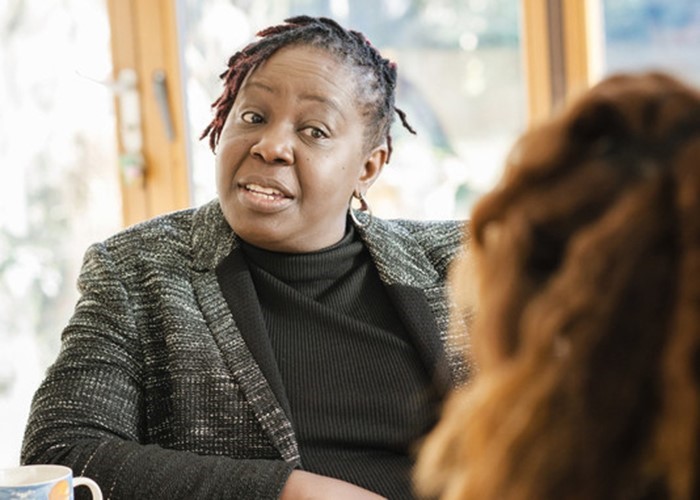NICE produces a range of guidance & advice to improve standards of health & social care.
The National Institute of Health and Care Excellence, also known as NICE, produces a range of guidance and advice about standards of health and social care. It wants to get patients and carers more involved in this work, and is consulting on plans.

Seven changes
NICE’s seven suggested changes are listed below, along with our view of each of them. We’d also like to hear from you about what you think, including any fresh ideas about how NICE could involve patients.
Read the full consultation document>>
1. Standardise how people can get involved across NICE’s guidance and standards programmes
Our view: this would be a positive move, as would standardised terminology. It would help organisations such as Breast Cancer Care to support people to get involved.
2. Involve people earlier and keeping them involved throughout the development process
Our view: we want to see NICE involve people as early as possible in the development of any guidance and advice, and keep them involved. People should feel like an integral part of the work.
3. Make clear how NICE finds out about and takes account of people’s experiences of care and how this information is incorporated into guidance and standards
Our view: this is a positive proposal, which we hope will mean greater transparency about how NICE uses information from patients and the public. With the impact of involvement made clearer, it could also encourage more people to get involved.
4. Recruit a pool of people who can be drawn on as needed to join decision-making bodies
Our view: although a pool of people might take less administration, we think there still needs to be specialised recruitment to ensure representation of the many different breast cancer types across particular projects.
We would like to know how many people would be recruited, how they’d be trained and how NICE would hope to keep them engaged.
We are also concerned that signing up for two years may be off-putting for some people, particularly people with secondary breast cancer.
5. Introduce a formal feedback process so that people are aware of the impact of their contribution
Our view: we are pleased to see this recommendation. It’s vital that people are able to see the difference their input has made, and have the opportunity to provide feedback.
However, there is little detail on what the feedback mechanism would be like in practice. We hope that NICE will work with people who get involved to ensure that the feedback process works well.
6. Make better use of social media to communicate with people about NICE guidance and standards, and to make it easier for people to communicate with NICE
Our view: we would like to see NICE use social media more to reach new people. However, this should include two-way conversation with patients rather than NICE broadcasting messages without the chance for discussion.
Social media can also bring a more personal touch. For example, NICE could share blogs and stories from people who have been involved.
7. Reinforce the message among NICE staff that involving people is everyone’s responsibility
Our view: this is an area for improvement at NICE and we hope more staff will see that involving people is everyone’s responsibility. We think induction and training for all staff are positive suggestions.
Other areas for improvement
As well as the seven recommendations, we feel that the current application process to get involved may be a barrier for some. As part of this review, we recommend the application process is made simpler and shorter.
Tell us your views
We’ll be responding to the consultation and would really like to hear what you think about these proposals so that we can incorporate your thoughts into our formal response. Perhaps you have been involved with NICE in the past or have suggestions for how NICE could make it easier for people to be involved in their work.
Please send your comments us at campaigns@breastcancercare.org.uk by 5pm on Monday 20 February.